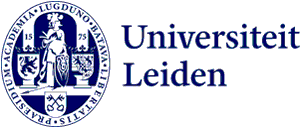
Political Science Master’s thesis prize 2024: the nominees
Towards the graduation ceremonies, you sense an increasing nervousness. Not only because all the tradition and glamour surrounding the event, also because that will be the day that the winner of the Political Science master’s thesis award will be announced. For 2023-2024, the jury is considering seven nominations, covering a broad range of topics—from campaign spending to African Regional Economic Communities. On 11 October 2024 we will know who will be added to our Hall of Fame.
The jury, consisting of Corinna Jentzsch, Tom Theuns and Yuan Yi Zhu, is currently examining the following theses. The winner will be announced during the master’s graduation ceremony on 11 October 2024 in the Academy Building in Leiden.
The shortlist
- Ismail Sidqui, The influence of African Regional Economic Communities (RECs) on coup occurrence: An analysis of the Eastern African Community (EAC) and the Economic Community of West African States (ECOWAS) (supervised by: Rutger Hagen and Femke Bakker)
- Tillman Iwersen, Not Just a Numbers Game: The Effects of Opposition Fragmentation and Polarisation in 19 Established Democracies (supervisor: Ingrid van Biezen; second reader: Michael Meffert)
- Ruben Geertman, Squabbling on ethnic lines: A quantitative analysis of the implications of ethnic recognition for peace (supervisor: Maria Spirova; second reader: Vasiliki Tsagkroni)
- Eric Zwarthoed, Estimating the effect of campaign spending of political parties in Western Europe: A case study of the Netherlands from 1998 to 2021 (supervisor: Simon Otjes; second reader: Cynthia van Vonno)
- Nina Schmal, Economic Development Aid and Conflict Intensity in Minor Civil Conflicts (supervisor: Christina Toenshoff; second Reader: Stefan Ćetković)
- Erik Sjoers, Reuring in de raad (supervisor: Peter Castenmiller; second reader: Tim Mickler)
- Labëri Leci, The Nexus of Repression, Resistance and Identity in Kosovo, 1981-1998 (Supervisor: Ivan Bakalov; second reader: Francesco Ragazzi)
